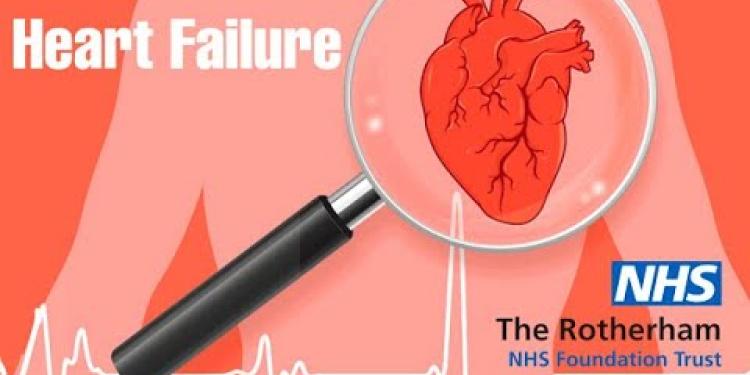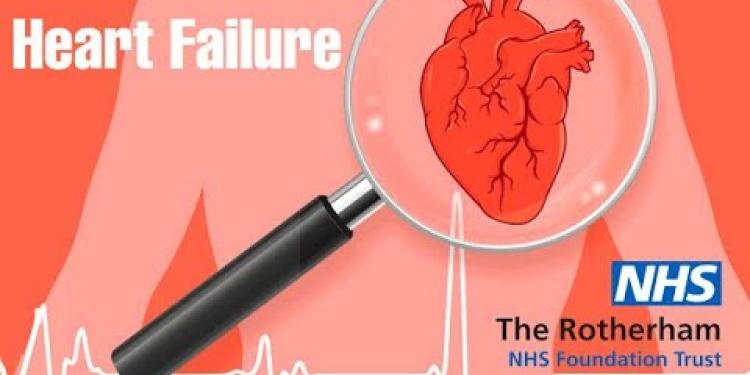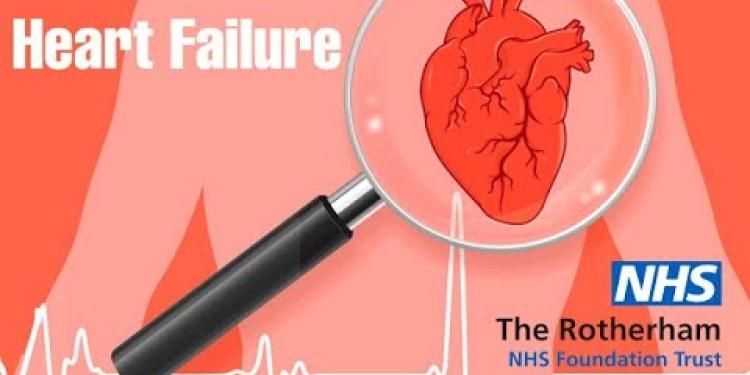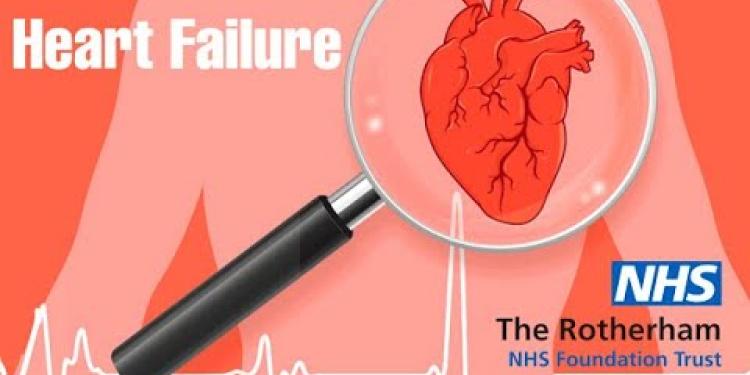Find A Professional
What is Heart Failure?
An Overview of Heart Failure
Heart failure, also known as congestive heart failure (CHF), is a serious medical condition where the heart is unable to pump blood efficiently to meet the body's needs. This can occur due to the heart becoming too weak or too stiff to fill and pump effectively. It can affect one or both sides of the heart. In the United Kingdom, heart failure is a prevalent issue, affecting approximately 920,000 people, and it tends to be more common in older adults.Causes of Heart Failure
Several conditions can lead to heart failure, with some of the most common causes being coronary artery disease, high blood pressure, and diabetes. Coronary artery disease narrows the coronary arteries, reducing blood flow to the heart muscle, while high blood pressure makes the heart work harder than normal, possibly leading to a weakened heart muscle. Other factors include congenital heart defects, heart valve disease, and chronic diseases like thyroid problems and obesity.Symptoms of Heart Failure
Symptoms of heart failure can vary depending on its severity and type but often include shortness of breath, persistent coughing or wheezing, swelling in the legs, ankles, and feet, fatigue, and rapid or irregular heartbeats. Some people may experience a reduced ability to exercise and sudden weight gain from fluid retention.Diagnosis and Treatment
Heart failure is diagnosed through a combination of medical history, physical exams, and various tests, such as an ECG, echocardiogram, and blood tests. Treatment typically involves lifestyle changes, medications, and sometimes surgical procedures. Medications might include ACE inhibitors, beta-blockers, and diuretics to help manage symptoms and improve heart function. In severe cases, devices like pacemakers or even heart transplants might be necessary.Living with Heart Failure
Though heart failure is a chronic condition, many people manage to live full, active lives with proper treatment and lifestyle adjustments. Eating a heart-healthy diet, regular physical activity, avoiding tobacco, and managing stress are essential. Additionally, regular check-ups with healthcare professionals are crucial for monitoring and managing the condition effectively.Conclusion
Heart failure is a significant health concern in the UK, but with early diagnosis and appropriate management, many individuals can maintain a good quality of life. Awareness and understanding of the condition's causes, symptoms, and treatments are key to managing and potentially preventing heart failure.Frequently Asked Questions
What is heart failure?
Heart failure is a condition where the heart is unable to pump blood effectively around the body, which can result in fatigue, breathlessness, and fluid retention.
What are the common symptoms of heart failure?
Common symptoms include shortness of breath, persistent coughing or wheezing, swelling in the legs, ankles, or abdomen, fatigue, and rapid or irregular heartbeat.
What causes heart failure?
Heart failure can be caused by various conditions, including coronary artery disease, high blood pressure, cardiomyopathy, heart valve problems, and untreated arrhythmias.
How is heart failure diagnosed?
Heart failure is typically diagnosed through a combination of medical history, physical examination, blood tests, chest X-rays, ECGs, echocardiograms, and sometimes MRI or CT scans.
Can heart failure be cured?
While heart failure generally cannot be cured, it can be managed with medication, lifestyle changes, and in some cases, surgical procedures or devices.
What are some lifestyle changes recommended for managing heart failure?
Lifestyle changes include eating a heart-healthy diet, reducing salt intake, exercising regularly, quitting smoking, and limiting alcohol consumption.
What medications are commonly prescribed for heart failure?
Common medications include ACE inhibitors, beta-blockers, diuretics, and aldosterone antagonists.
How does salt intake affect heart failure?
High salt intake can cause the body to retain fluid, which can worsen the symptoms of heart failure by increasing the burden on the heart.
What is the role of exercise in managing heart failure?
Exercise can improve cardiovascular health, increase stamina, and reduce symptoms of heart failure. However, it should be undertaken under the guidance of a healthcare professional.
Are there surgical options for treating heart failure?
Surgical options may include procedures to correct underlying heart problems, such as coronary artery bypass surgery or heart valve repair. In severe cases, a heart transplant might be considered.
Can stress affect heart failure?
Yes, stress can increase heart rate and blood pressure, exacerbating heart failure symptoms. Stress management techniques are important for people with heart failure.
How often should someone with heart failure see their GP or specialist?
The frequency of visits will depend on the severity of the condition, but regular check-ups are important to monitor the condition and adjust treatments as necessary.
Is heart failure genetic?
While heart failure itself is not directly inherited, some conditions that increase its risk, such as cardiomyopathy, can run in families.
What is the prognosis for someone with heart failure?
The prognosis varies depending on the severity of the condition and how well it is managed. With proper treatment, many people can lead full, active lives.
Is heart failure the same as a heart attack?
No, heart failure is a chronic condition where the heart gradually becomes less effective at pumping blood, while a heart attack is an acute event where blood flow to the heart muscle is suddenly blocked.
Useful Links
Useful links from: Heart failure introduction
- NHS - Heart Failure This NHS page provides comprehensive information on heart failure, including its symptoms, causes, diagnosis, treatment options, and ways to manage the condition.
- British Heart Foundation - What is Heart Failure? The British Heart Foundation provides a detailed overview of heart failure, including information on diagnosis, treatment, and living with the condition. The site also offers support resources and research updates.
- Heart UK - Heart Failure Heart UK's page on heart failure covers essential information about the condition, its symptoms, causes, and treatment options. The site also includes advice on managing and reducing the risk of heart failure.
- NHS Inform - Heart Failure NHS Inform provides detailed information on heart failure, including its symptoms, causes, treatments, and self-help tips. The site also includes links to additional resources and support services.
Useful links from: Heart Failure : What is heart failure?
- NHS - Heart failure An overview of heart failure provided by the NHS, including symptoms, causes, diagnosis, treatment, and living with the condition.
- British Heart Foundation - Heart failure The British Heart Foundation offers comprehensive information on heart failure, including understanding the condition, managing symptoms, and advice for patients and caregivers.
- Heart Failure Matters - What is heart failure? A resource by the Heart Failure Association of the European Society of Cardiology that explains what heart failure is, its symptoms, and provides useful educational material for patients.
- Cardiomyopathy UK - Understanding heart failure Cardiomyopathy UK's resource offering detailed information about heart failure, including types, symptoms, diagnosis, treatment options, and support available.
Useful links from: Heart Failure : The normal heart
- NHS - Heart failure Comprehensive information from the NHS on heart failure, including symptoms, causes, diagnosis, and treatment options.
- British Heart Foundation - Heart failure The British Heart Foundation offers detailed insights into heart failure, including understanding the condition, managing symptoms, and current research.
- NHS - How the heart works An NHS guide explaining the structure and function of the heart, providing a basis to understand heart failure and other cardiac conditions.
- Pumping Marvellous Foundation A UK-based patient-led charity providing resources, support, and education for those affected by heart failure and their caregivers.
Useful links from: Heart Failure : Heart failure that cannot pump
- NHS - Heart Failure NHS page providing comprehensive information on heart failure, including symptoms, causes, diagnosis, treatment, and living with the condition.
- British Heart Foundation - Heart Failure The British Heart Foundation (BHF) offers detailed information on heart failure, its effects on daily life, treatment options, and support for patients and caregivers.
- Pumping Marvellous Foundation Pumping Marvellous Foundation is a UK heart failure charity providing practical help, advice, and guidance for those living with heart failure and their families.
- Lets Stay Together - Heart Failure Support This UK-based resource offers support and information tailored to individuals living with heart failure and their caregivers, including coping strategies and access to community resources.
Have you found an error, or do you have a link or some information you would like to share? Please let us know using the form below.
- Ergsy carfully checks the information in the videos we provide here.
- Videos shown by Youtube after a video has completed, have NOT been reviewed by ERGSY.
- To view, click the arrow in centre of video.
- Most of the videos you find here will have subtitles and/or closed captions available.
- You may need to turn these on, and choose your preferred language.
- Go to the video you'd like to watch.
- If closed captions (CC) are available, settings will be visible on the bottom right of the video player.
- To turn on Captions, click settings .
- To turn off Captions, click settings again.




